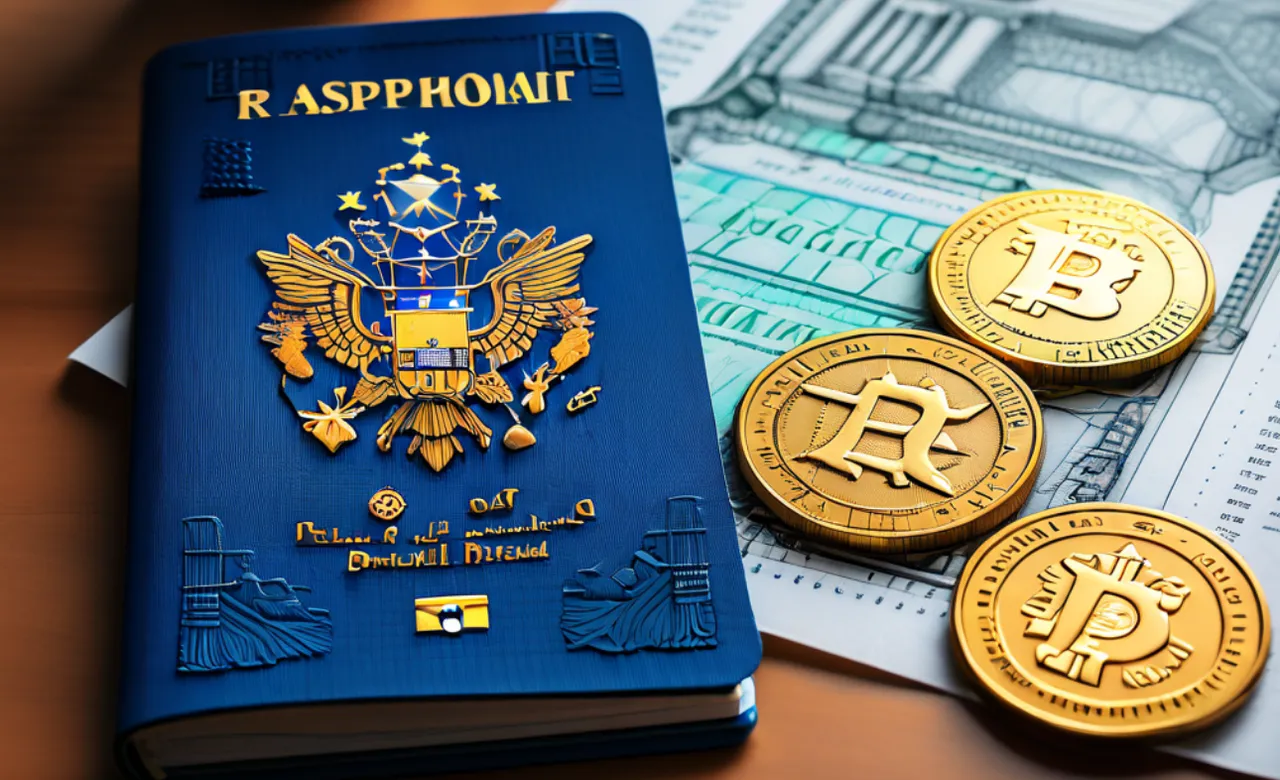Are you tired of paying renewal fees every 5 to 10 years for your identification documents? Is the red tape and bureaucracy of keeping it up-to-date frustrating you?
How would it feel to have total control of your own identity? That is part of the promise of web3/crypto, and could become our reality in the near future.
In this article, we discuss how decentralized blockchains give you ultimate control over your identity, and how we might make the transition away from national IDs.

Bitcoin-Based IDs
Satoshi Nakamoto mined a lot of Bitcoin in its early days, and thanks to the transparency of the blockchain, we can identify his wallet address(es), along with the number of Bitcoins they hold (approximately 1 million, in case you're wondering).
Since disappearing, his wallet address has remained dormant. If Satoshi Nakamoto were still alive though, he could instantly prove his identity to all of us by simply signing a transaction with his private key and broadcasting it.
Speaking of proving identities, Craig Wright could have easily validated his claim that he was Satoshi Nakamoto by simply signing a transaction with Satoshi's private key, but he was never able to do so, and was therefore labeled a fraud.
We can see some of the benefits of a Bitcoin-based ID:
- Identity theft is impossible
- Your ID becomes unalterable
- You don't need to waste time and money on government bureaucracy
Sounds fairly appealing, doesn't it?
The first issue we must face though, is how do we associate a single person to a single Bitcoin address?
Linking A Person To A Wallet
Bitcoin is an permissionless payment system, which means that anyone anywhere in the world can create a unique wallet for themselves.
The problem is that a single person can create as many Bitcoin wallets as they want to, making it difficult to associate one wallet to one person.

In the case of Satoshi Nakamoto, we know that he was the first person to mine Bitcoin, and continued to mine it constantly for years, so we can easily identify his wallet(s).
That said, how would us mere mortals link a Bitcoin wallet to our real-world identities?
Hypothetically, we could all take a photo of ourselves holding our government IDs, and upload them to the Bitcoin blockchain as ordinals, signing them with our private keys.
Bitcoin's Limitations
The problem is that Bitcoin only supports an average of 7 transactions per second, which is not enough for the entire world population to upload their identification documents.
Unless Bitcoin were to implement some form of zero knowledge proof sidechain solution, it would be impossible for everyone in the world to identify themselves this way.
Perhaps the more likely scenario is that "old school" forms of identification will be replaced by a more comprehensive blockchain-based ID that spans the multi-chain ecosystem.
Which Blockchain?
The other question we need to tackle is which blockchain will end up hosting our IDs?
There exist hundreds, if not thousands of public blockchains, and there are more being launched every month, each with its own community.
Given humanity's tribal nature, it's highly unlikely that all eight billion people on the planet will end up using only one blockchain. Rather, our identities will probably be split up amongst thousands of different blockchains.
Let's take a look at one example.
Advantages of HIVE
Proving that you own a Bitcoin address is one thing, but wouldn't it be even better to have an ID that is verifiably associated with your online reputation and public activity?

Yes, I suppose we can already do that by providing links to our social media profiles on Facebook, Instagram, and X.
The problem is those platforms can unjustly suspend your account when you refuse to take experimental mRNA jabs or stop your children from changing their gender.
This is where HIVE comes in (the blockchain that this article is being published to), and its benefits over traditional web 2.0 social media.
On HIVE you can build a censorship-resistant reputation for yourself over time by writing content, commenting, and interacting with the community. All of your HIVE activity is linked immutably with your public wallet address.
As a Hive user, you can easily prove a more comprehensive identity by simply signing a transaction with your Active key, thereby associating yourself with all the prior actions of your account.
You could also use your identity on Hive to prove ownership of addresses on other blockchains as well.
What If You Lose Your Private Key?
One of the problems with blockchain-based IDs is the possibility of losing the private key to your Bitcoin, HIVE, or other account.

Herein lies the benefit of having a nation state manage your ID for you.
If you lose your passport, for example, you can go to a police station or embassy and prove your identity by presenting yourself, providing information, or giving fingerprints.
On the other hand, with a blockchain-based ID, your wallet or account would be totally inaccessible forever should you misplace your private key.
In that case, you would have to create a new account, and somehow prove that it is indeed you behind the new address.
At this stage of the game, I think most people aren't prepared for that level of personal responsibility and accountability, but a growing number of individuals are embracing it as faith in government erodes.
Recovery Options
One solution to the lost-key problem would be to share your private key with a trusted friend or family member, so that you could get a copy from them in case you lost it.
Another possibility would be to store it with a crypto bank, who would take care of it for you. In this case, you would be transferring trust from the state to a private entity.
International Travel
Okay so let's imagine we now have our personal IDs on a combination of Bitcoin, HIVE, and other blockchains, and we want to travel to other countries.
You arrive at a private airport, and instead of handing over a national passport, you scan a QR code and sign a transaction with your private key, proving that you are who you say you are.

The problem is, which blockchain do we agree to prove our identity on? For example, El Salvador has taken the step to make Bitcoin legal tender, but that doesn't mean all other autonomous regions will follow suit.
What if larger nations states were to ultimately split up, after the debt-based fiat financial system finally collapses, and the political divide becomes irreparable?
Perhaps each autonomous region within the failed state would adopt a different blockchain, and you would have to identify yourself on whichever one they choose.
Ultimately, the leaders of each region will have to decide which blockchain is recognized for identification purposes in their territory, and create a contingency system in the case of lost keys.
If you learned something new from this article, be sure to check out my other posts on crypto and finance here on the HIVE blockchain. You can also follow me on InLeo for more frequent updates.
Until next time...
Further Reading
Crypto Won't Experience Widespread Adoption Until Fiat Currencies Fail
Will Traditional Nation States Survive As Crypto Adoption Takes Off?
How Crypto Will Change The Power Structures Of Society
Resources
Image Generation Courtesy of Venice AI [1]